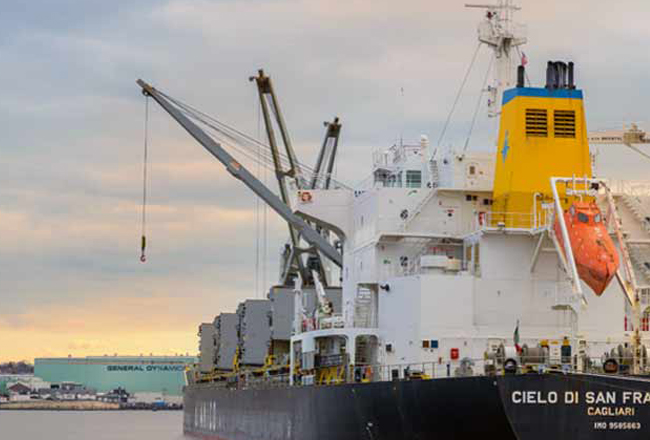A new report from a commission of environmentalists, fishing industry professionals and state legislators has called on the Department of Energy and Environmental Protection (DEEP) to establish a mitigation fund to offset potential losses and damages that could occur during the development of offshore wind power projects.
 The 24-page “Commission on Environmental Standards for Minimizing and Mitigating Environmental and Commercial Impacts of the Construction and Operation of Offshore Wind Facilities” envisioned the mitigation fund as a source of handling any economic losses for the state and commercial fisheries and any environmental hazards that might transpire in the construction and maintenance of future offshore wind power developments.
The 24-page “Commission on Environmental Standards for Minimizing and Mitigating Environmental and Commercial Impacts of the Construction and Operation of Offshore Wind Facilities” envisioned the mitigation fund as a source of handling any economic losses for the state and commercial fisheries and any environmental hazards that might transpire in the construction and maintenance of future offshore wind power developments.
“This fund should not be used in place of avoiding or minimizing impacts,” the report said. “Developers should follow the principle of first avoiding conflicts or impacts, then minimizing those that are unavoidable, mitigating the impacts from new development through appropriate use of communications and technology, and finally, only once those have been adhered to, considering compensation for any residual losses.”
The report put a particular emphasis on the possible impact on marine mammals in the waters where the wind turbines would be placed.
“Sounds resulting from bottom surveys, ships and construction may risk introducing possible changes in mammal behavior, including effective habitat reduction because of sound avoidance, interruption of life-cycle activities, and injury to hearing,” the report continued. “For some marine mammals, low-frequency sounds produced by pile driving, if performed in close proximity to an animal, can potentially cause permanent damage to hearing or temporarily make it difficult for the animal to hear predators, prey, and each other,” the report states. “The bidder should provide a description of how it will avoid, minimize, and mitigate the projects risk to marine mammals and sea turtles.”
The report was presented in an advisory capacity. DEEP, which is tasked with accepting bids for up to 2,000 MW in offshore wind power for use in Connecticut”™s power grid, is not required to accept the commission”™s findings.






















